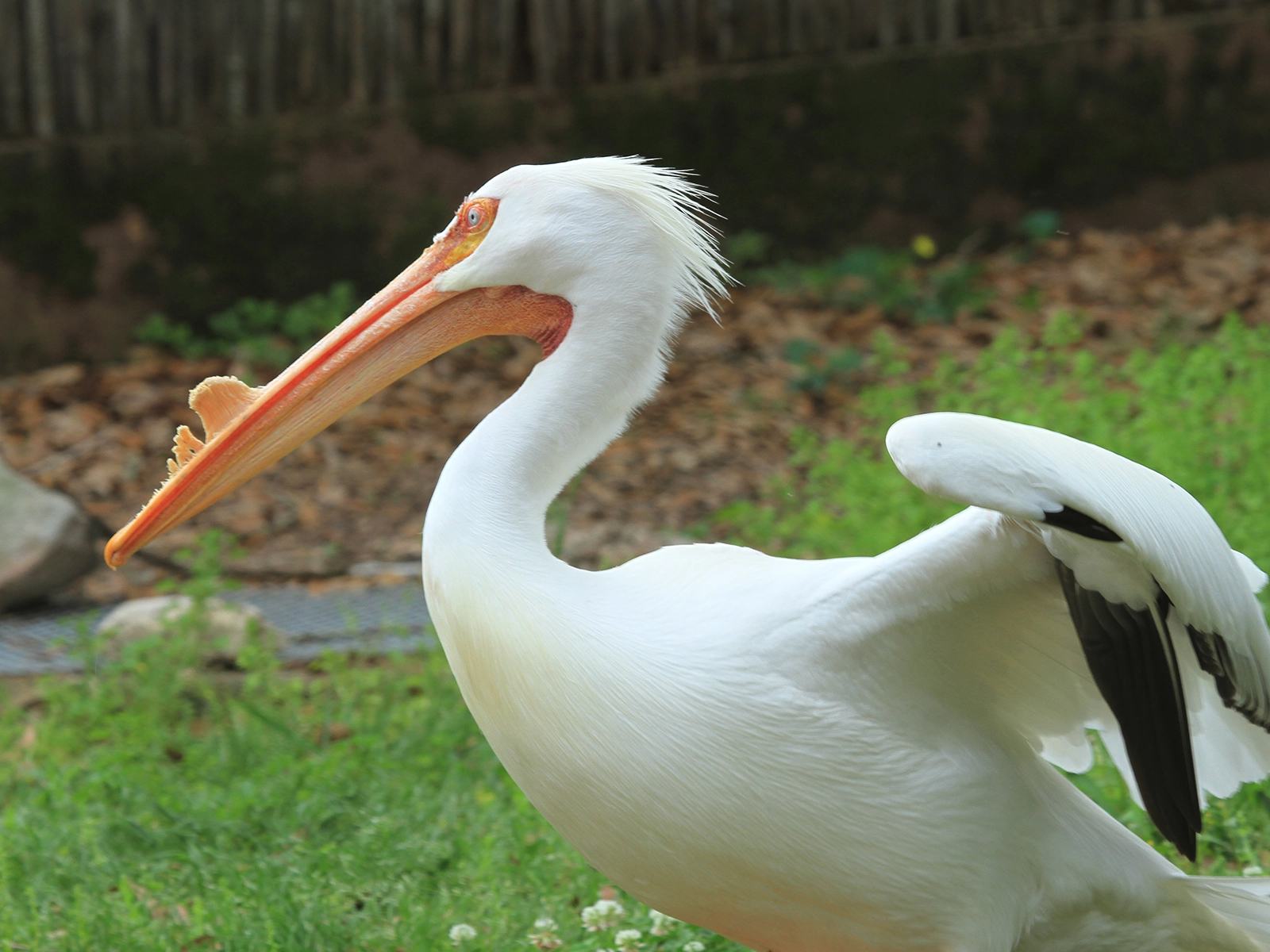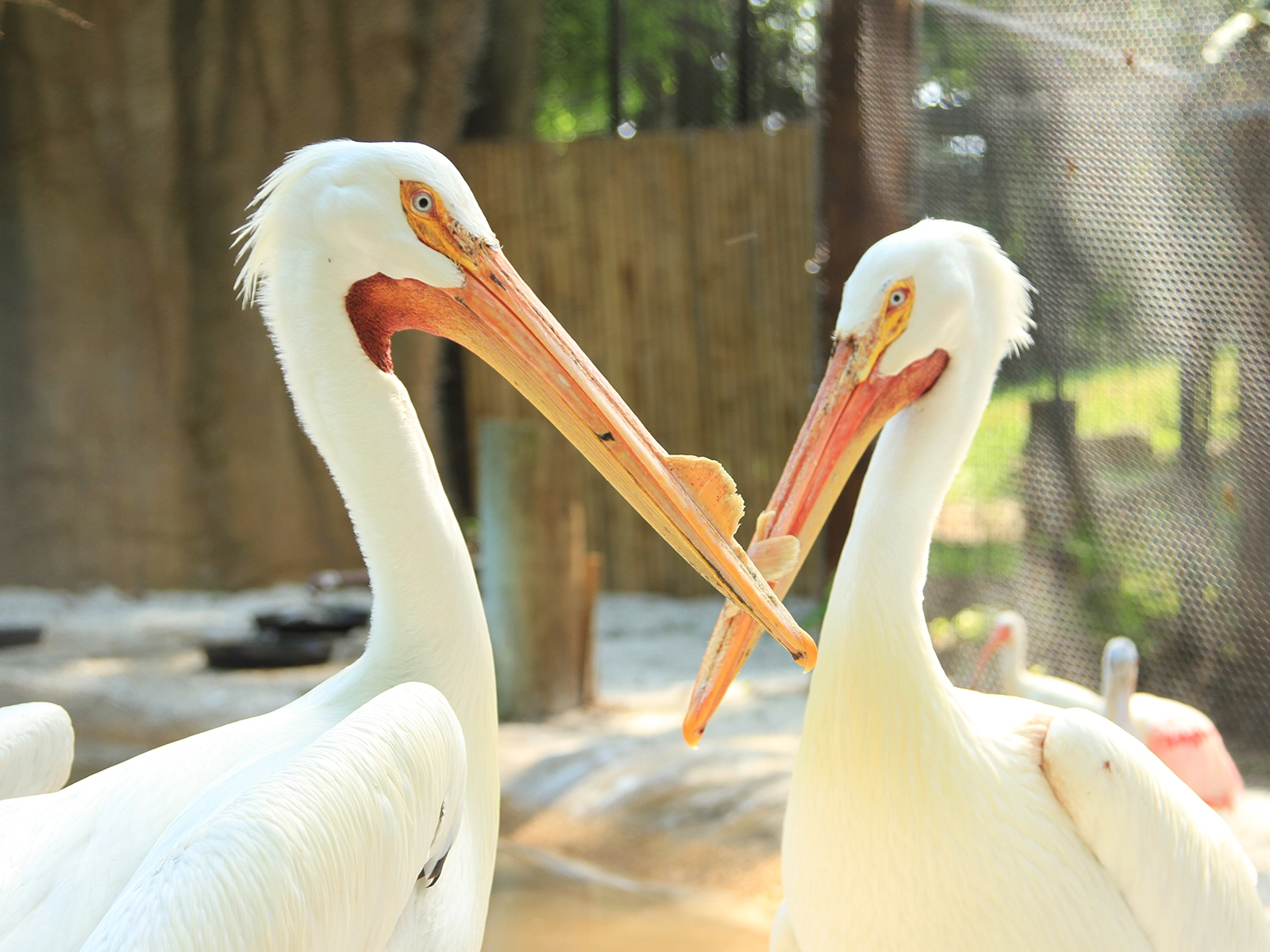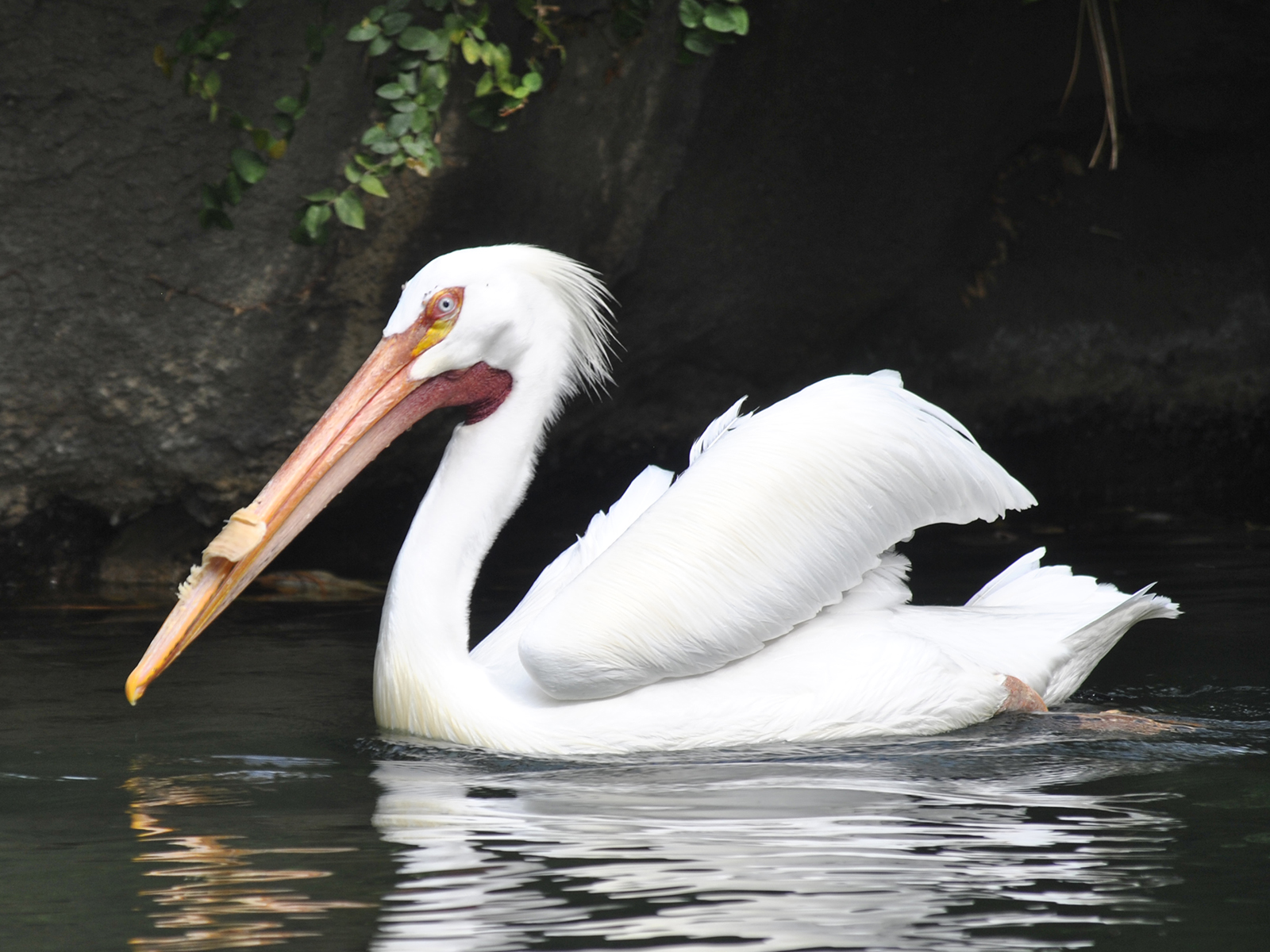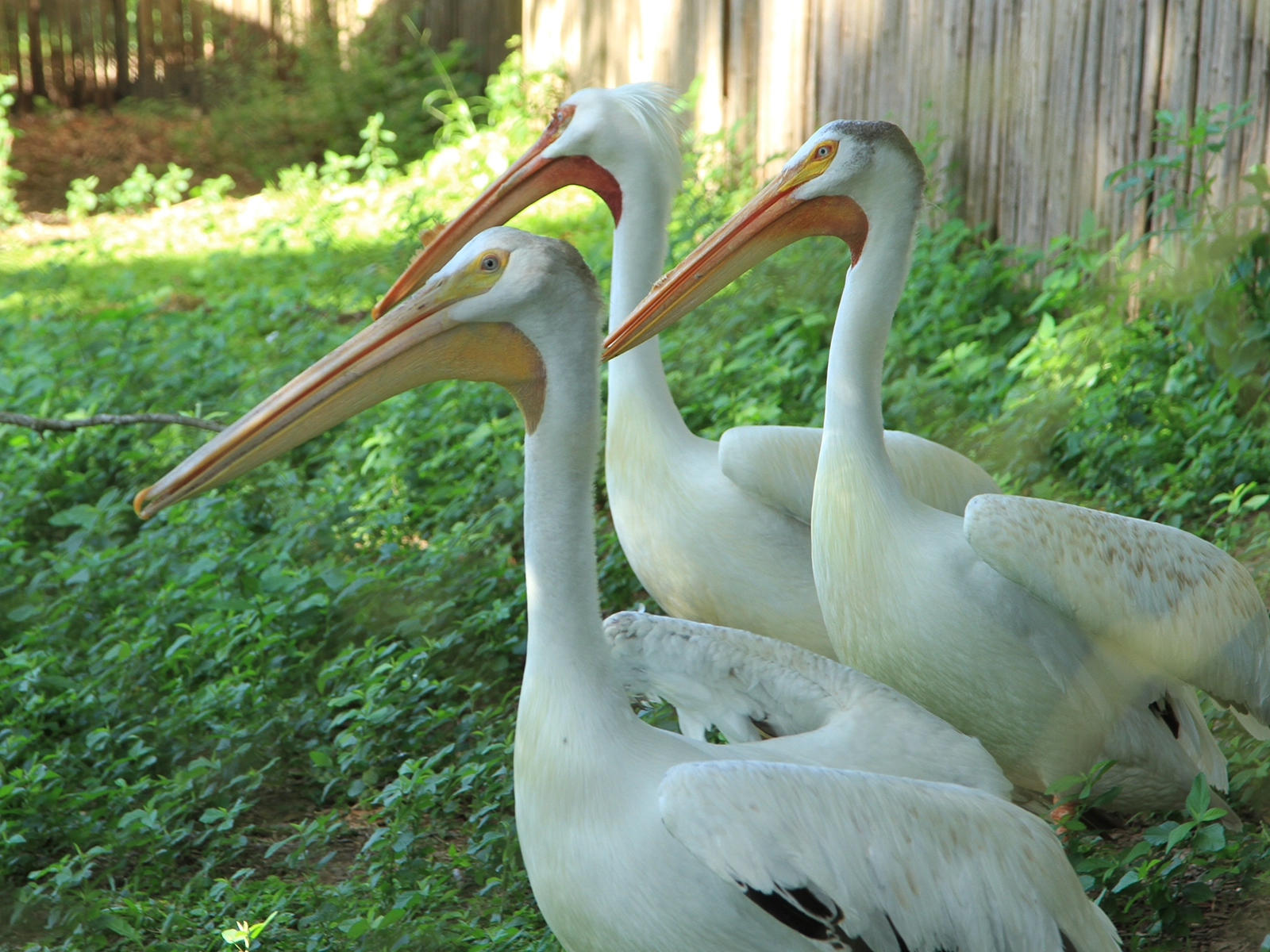White Pelican
Pelecanus erythrorhynchos
Class
Aves
Order
Pelicaniformes
Family
Pelicanidae

Aves
Pelicaniformes
Pelicanidae
North America and Central America
Length: Males Avg. 5.6 ft, Females Avg. 4.8 ft
Wingspan: 88 - 140 in
Weight: Males 20 - 30 lbs, Females 11 - 20 lbs
Lakes, marshes, salt bays, and beaches
Clutch of 2 - 3 eggs
Incubation: 30 - 42 days
Mainly fish; also amphibians and crawfish
Least Concern

These migratory birds breed in inland Canada and the Northern United States. In the spring, they migrate south to the wetlands of the Gulf Coast. The pelican's long bill is orange, with an extendable throat pouch on the underside.

Unlike the brown pelican, the white pelican does not dive for fish. Instead, it dips its head underwater to scoop up its prey. Coordinated flocks of swimming pelicans encircle fish or drive them into shallows waters where they become concentrated and are more easily caught.

Although the white pelican is not threatened, many of the breeding colonies in the U.S. and Canada face challenges from habitat loss, pesticide contamination, and water level disturbances.